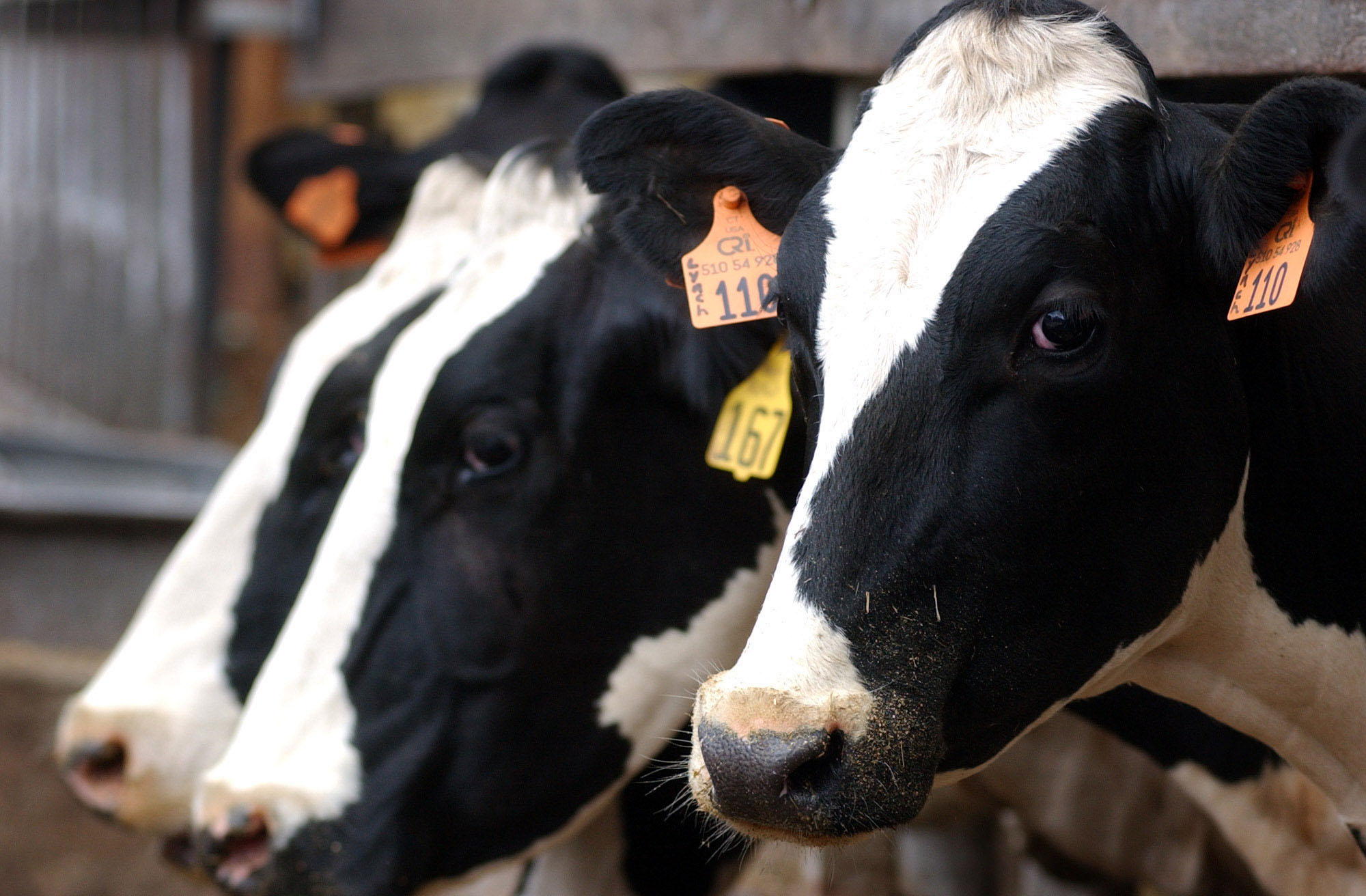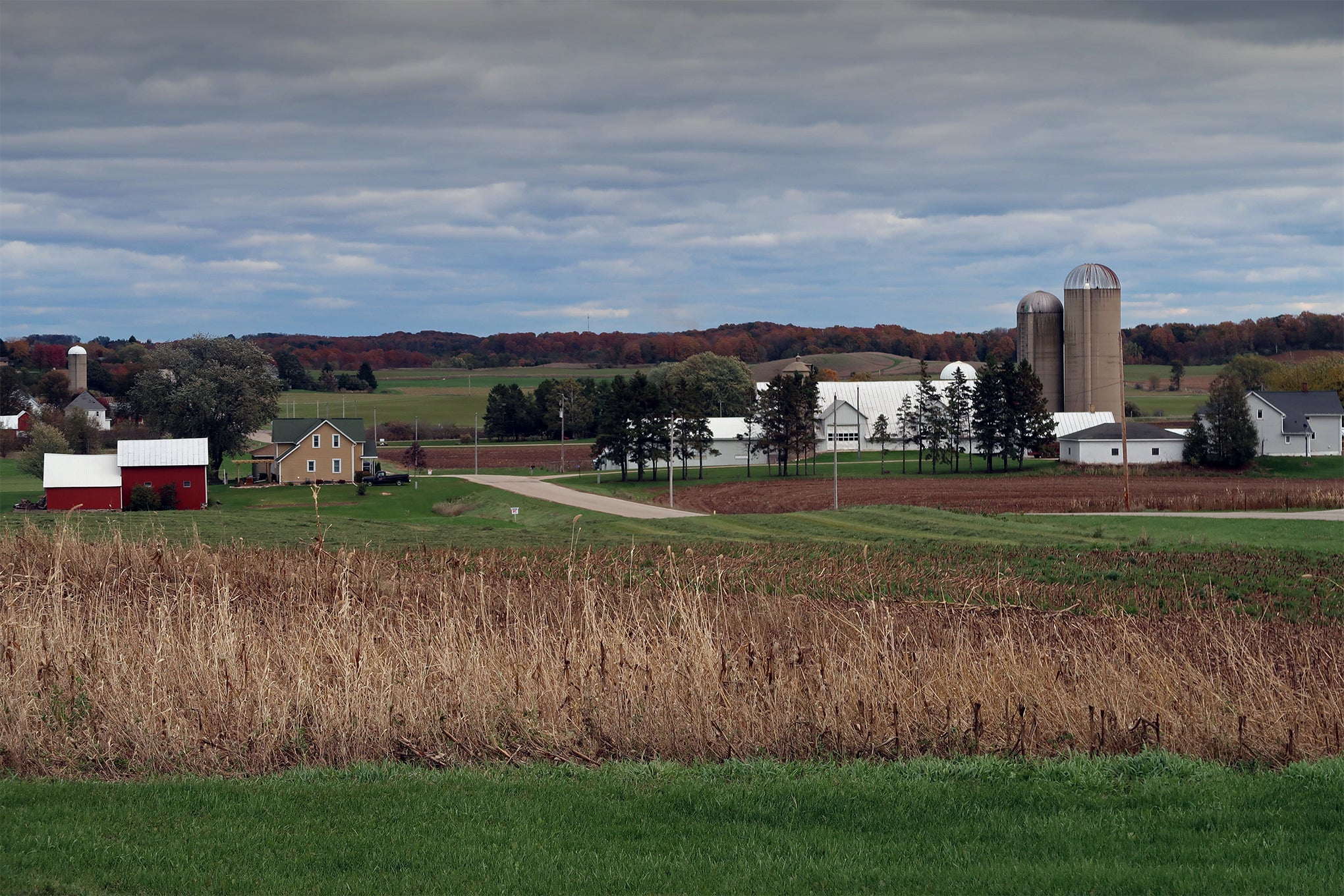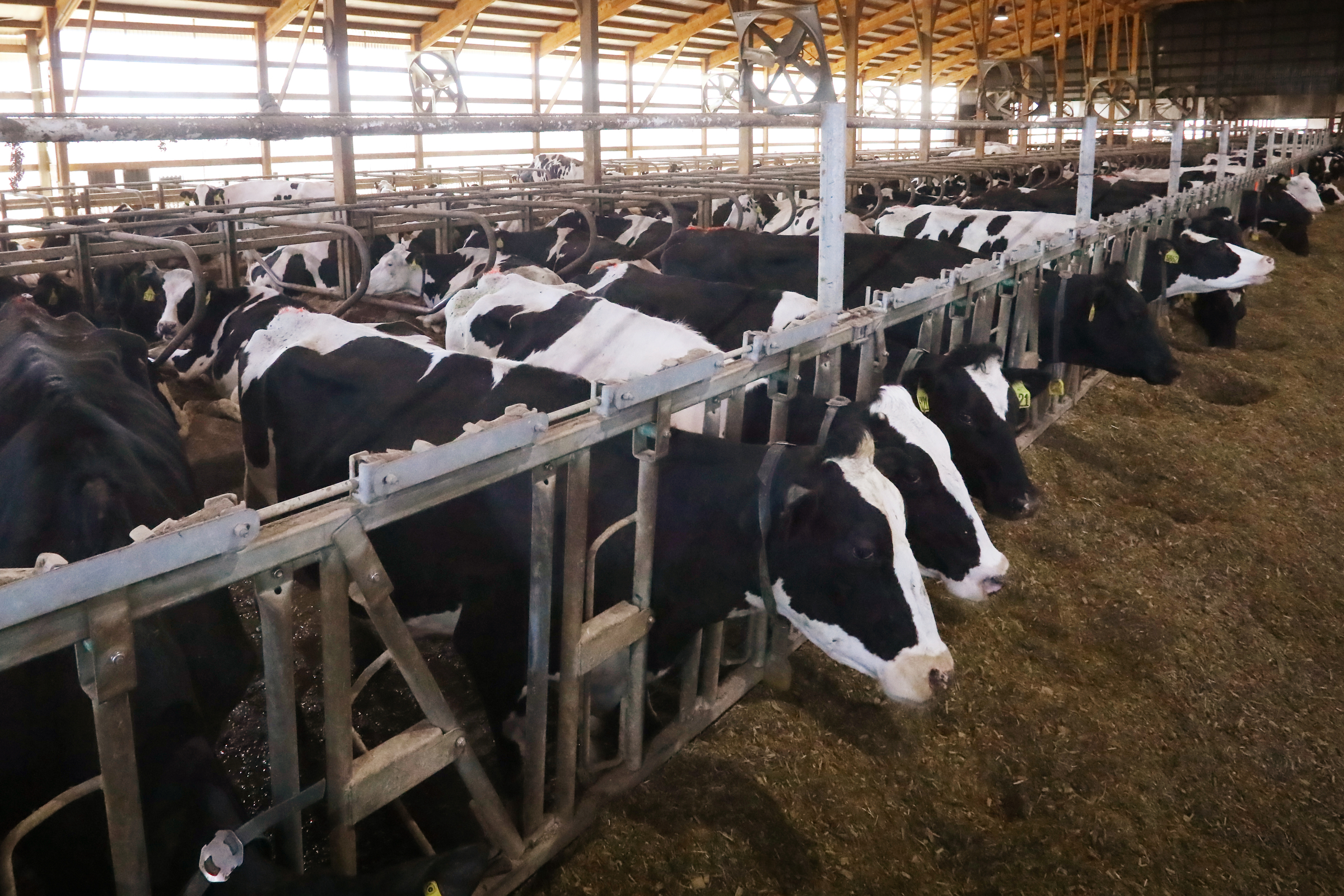Under changes to a water quality permit, a large dairy farm in northeastern Wisconsin — which faced almost a decade of litigation over its proposal to expand — could nearly double its herd in an area vulnerable to groundwater pollution.
The Wisconsin Department of Natural Resources is proposing a maximum of 21,450 animal units, or roughly the equivalent of 15,000 cows, for Kinnard Farms in Kewaunee County.
The DNR is also proposing offsite groundwater monitoring as part of permit modifications. The permit regulates any releases to groundwater, as well as waters flowing to Casco Creek within the Kewaunee River Watershed.
Stay informed on the latest news
Sign up for WPR’s email newsletter.
The changes are tied to a Wisconsin Supreme Court decision last year that found regulators can require operating conditions on so-called factory farms, also known as concentrated animal feeding operations or CAFOs.
Kinnard Farms isn’t proposing to expand now, according to the agency, emphasizing the changes are tied to the July court ruling. The operation has around 8,000 cows that are expected to produce more than 103 million gallons of manure this year.
The DNR is accepting written comments on the permit conditions until Jan. 25.
Environmental advocates and residents argue the cap proposed by regulators doesn’t safeguard water quality.
“They are missing the opportunity to develop that limit as a meaningful way to address the water contamination crisis in Kewaunee County,” Tony Wilkin Gibart, executive director of Midwest Environmental Advocates, said.
Residents in Kewaunee County have struggled with drinking water contamination of private wells from agriculture for years. The region is susceptible to pollution from manure runoff due to thin soils and fractured bedrock that allow contamination to more easily seep into groundwater.
In July, the Wisconsin Supreme Court ruled the DNR had authority to impose permit conditions on Kinnard Farms to protect water quality as part of a case that challenged a permit issued by the DNR. The decision stemmed from a 2012 request by the farm to add a second site and more than 3,000 dairy cows, almost doubling the size of its operation at the time. Nearby residents challenged the permit, setting off years of litigation.
The Wisconsin Supreme Court ruling upheld a 2014 decision by an administrative law judge that ordered the DNR to require a limit on animals for Kinnard Farms in addition to offsite groundwater monitoring, citing “a crisis with respect to groundwater quality in the area.”
Since then, the DNR reissued the farm’s water quality permit in 2018, which was also challenged by residents. The agency reached a settlement with the farm that required changes to the permit if the state Supreme Court affirmed the DNR’s authority to require a cap and offsite monitoring.
Chris Clayton, agricultural runoff section chief for the DNR, said the agency asked Kinnard Farms to provide a projected maximum number of animal units as part of permit modifications.
“They provided information requesting 21,450 animal units,” Clayton said.
If Kinnard Farms were to expand, Clayton noted the operation would be required to demonstrate it has enough land to apply manure and wastewater, as well as meet 180-day storage requirements.
Even without future expansion, a DNR fact sheet shows groundwater monitoring data at Kinnard Farms has found “persistent exceedances of groundwater quality standards for nitrate and bacteria.” Sampling of monitoring wells in production areas have shown nitrate concentrations of more than 20 milligrams per liter — double the state’s health and groundwater standards of 10 milligrams per liter.
Nitrates are the state’s most widespread contaminant and have been associated with birth defects, thyroid disease and colon cancer. Research has shown around 10 percent of the state’s 800,000 private wells exceed federal health standards for nitrates.
Around 90 percent of nitrogen in groundwater can be traced back to agriculture.
Kinnard Farms must submit a groundwater monitoring plan for fields receiving manure that will be reviewed by the DNR for approval under the permit modifications, regardless of any future expansion. Contaminated groundwater above the production area indicates “landspreading as a potential source” of pollution.
“We do believe that groundwater monitoring above the production area from fields should provide useful information on the impacts of land application of manure on groundwater,” Clayton said.
Jodi Parins, who lives near Algoma in Kewaunee County, feels the DNR should choose where monitoring is conducted. She would also like to see a cap closer to the farm’s current size. Parins is among residents who petitioned regulators to review its 2018 decision to reissue a permit for the farm.
“There hasn’t been enough done and by the agencies that are responsible for the protection of our drinking water,” Parins said.
Kinnard Farms and its attorney Jordan Hemaidan did not return requests for comment about the proposed changes. In July, the farm said it was disappointed with the state Supreme Court’s ruling but respected the decision.
“Our family remains committed to producing high-quality, nutritious milk and renewable natural gas while going the extra mile to protect our precious land and water resources,” Kinnard Farms said in a statement at the time.
The Wisconsin Natural Resources Board approved manure spreading restrictions in 15 eastern Wisconsin counties in 2018 after research showed up to 60 percent of wells sampled in Kewaunee County had signs of waste from both cows and people. Follow-up research has found most illnesses from the county’s contaminated wells stem from cow manure. Cows outnumber residents in the county by 5 to 1.
Gov. Tony Evers dubbed 2019 the “Year of Clean Drinking Water,” and Assembly Speaker Robin Vos, R-Rochester, convened a task force that held meetings throughout the year that produced more than a dozen bills. That legislation was introduced two years ago to address a variety of issues, including groundwater pollution from manure runoff and contaminated wells. Many of the bills passed the Assembly with bipartisan support, but they died in the Senate at the onset of the COVID-19 pandemic.
The Dairy Business Association and Wisconsin Farm Bureau Federation have said efforts are ongoing to address nitrate pollution of drinking water wells. They are backing bills introduced by a bipartisan group of lawmakers in November that would help people address nitrate-contaminated wells and aid farmers with optimizing the use of nitrogen fertilizer on their land.
Wisconsin Public Radio, © Copyright 2025, Board of Regents of the University of Wisconsin System and Wisconsin Educational Communications Board.





